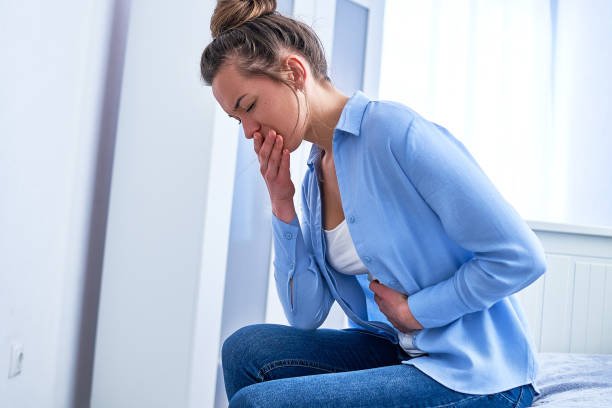Table of Contents
When Should I Worry About Upper Left Abdominal Pain?
Introduction
Experiencing pain in the upper left abdomen can be a source of worry. This area houses several vital organs, including the stomach, spleen, pancreas, and part of the large intestine. While occasional discomfort might not be a cause for concern, persistent or severe pain can signal a potential underlying issue.
Potential Causes Of Upper Left Abdominal Pain
The cause of upper left abdominal pain can vary depending on the nature of the pain and accompanying symptoms. Here’s a breakdown of some common culprits:
-
Indigestion:
Overeating, consuming fatty or spicy foods, or excessive alcohol intake can lead to indigestion, causing discomfort in the upper left abdomen. Symptoms often include heartburn, bloating, and nausea.

-
Gastritis:
Inflammation of the stomach lining, often caused by H. pylori bacteria infection or overuse of pain relievers (NSAIDs), can manifest as upper left abdominal pain, along with nausea and vomiting.
-
Peptic Ulcers:
These are open sores in the stomach lining or duodenum (first part of the small intestine). Peptic ulcers can cause burning or gnawing pain in the upper left abdomen, especially on an empty stomach or at night.
-
Spleen Problems:
An enlarged spleen due to infection, mononucleosis, or trauma can cause pain in the upper left side of the abdomen, sometimes accompanied by a feeling of fullness.
-
Pancreatitis:
Inflammation of the pancreas can cause severe upper left abdominal pain that may radiate to the back. Additional symptoms might include nausea, vomiting, and fever.
Less Common Causes Of Upper Left Abdominal Pain
While less frequent, other factors can also contribute to upper left abdominal pain:
-
Muscle Strain:
Strenuous exercise or heavy lifting can strain muscles in the abdominal wall, mimicking pain in the upper left abdomen.
-
Kidney Stones:
Stones located in the upper left part of the urinary tract can cause sharp, cramping pain in the flank (back and side) that may radiate to the lower abdomen or groin.
-
Hiatal Hernia:
When part of the stomach pushes through the diaphragm, it can cause heartburn, chest pain, and upper left abdominal discomfort.
When To Seek Medical Attention
Don’t hesitate to seek medical attention if you experience any of the following alongside your upper left abdominal pain:
- Severe or worsening pain
- Pain that radiates to the back, chest, or jaw
- Fever
- Bloody vomit or stool
- Unexplained weight loss
- Difficulty swallowing
- Yellowing of the skin and eyes (jaundice)
These symptoms could indicate a more serious condition requiring prompt medical evaluation and treatment.
Frequently Asked Questions (FAQs)
-
What Foods Can Trigger Upper Left Abdominal Pain?
Spicy, fatty, acidic foods, and excessive caffeine or alcohol can irritate the digestive system and worsen pain in the upper left abdomen.
-
Can Stress Cause Pain In My Upper Left Abdomen?
Stress can worsen digestive issues and contribute to pain in the upper left abdomen.
-
How Can I Prevent Upper Left Abdominal Pain?
Maintaining a healthy diet, managing stress, and avoiding foods that trigger your discomfort can help. Eating smaller meals more frequently and avoiding lying down right after eating may also be beneficial.
-
What Medications Can Help With Upper Left Abdominal Pain?
Over-the-counter antacids can neutralize stomach acid and relieve heartburn and indigestion associated with upper left abdominal pain. However, consult your doctor before taking any medication for extended periods.
-
Are There Natural Remedies For Upper Left Abdominal Pain?
Ginger tea or supplements may help soothe nausea associated with upper left abdominal pain. However, it’s important to consult your doctor before using any herbal remedies, especially if you are taking other medications.
Conclusion
While upper left abdominal pain can have various causes, some are more serious than others. If you experience persistent or severe pain, or if it’s accompanied by concerning symptoms, consult your doctor for a proper diagnosis and treatment plan. Early intervention can ensure a healthy digestive system and prevent future complications.
References
- National Institute of Diabetes and Digestive and Kidney Diseases: https://www.niddk.nih.gov/about-niddk/research-areas/digestive-diseases
- Mayo Clinic: [https://www.mayoclinic.org/symptoms/abdominal-pain/basics/definition/sym-20050728]
Discover more from Pain Relief Methods
Subscribe to get the latest posts sent to your email.
